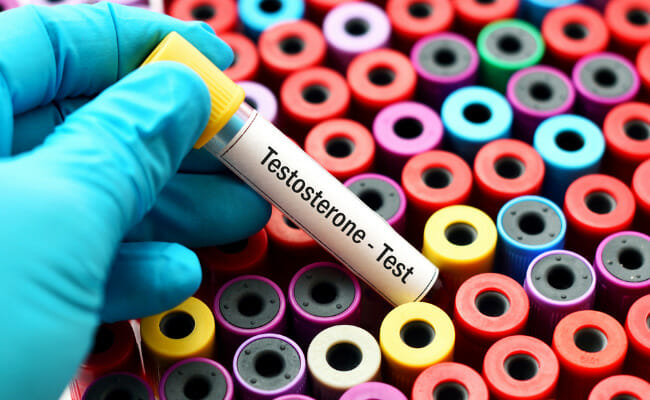How TRT Is Changing Men’s Lives for the Better
TRT, or testosterone replacement therapy, is a medical treatment used by men who suffer from low testosterone levels (T) to bring their T levels to the normal physiological range. Testosterone levels can lower with age and health issues, come as a repercussion of an unhealthy lifestyle, or be an innate, natural condition.
Research shows that only 1% of over 20% of men of age 50+ test and treat testosterone, and that percentage would most likely be higher (and both men and women being happier), should people give the needed attention to this aspect. It doesn’t only impact men’s health, who are left to suffer in silence; it can also worry and bring unhappiness to the loved one.
This is a natural process, and as unfair as it might seem, you must acknowledge it and take the matter into your hands. If you’re a man reading these facts, you know you’re the one to go through the TRT should you need it, but if you’re a woman, don’t forget you have the solution for your beloved one when the bad times come.
Enough with the talking, and let’s get to facts. This article aims to help you figure out how to overcome the anxiety and stress that may come in a relationship when the male part goes through that unpleasant phase of aging.
What testosterone replacement treatment is

Photo source: https://unsplash.com/photos/LxPb0793MXU
Testosterone replacement therapy aims to restore men’s testosterone levels by providing their bodies with bioidentical testosterone. The synthetic product matches the chemical structure men’s bodies produce and help relieve low levels of T. The most common benefit from such remedy is through the following procedures:
- Pills
- Injection
- Implant
- Patches
- Topical methods like gels and creams.
How to get the proper TRT
The best and most recommended option is to benefit from the services of a specialized TRT clinic or use government-funded medical services available in your country.
However, what reputable organizations such as Balance My Hormones recommend is to avoid buying TRT online and prescribe it yourself; instead, see a doctor and have a testosterone check-up.
Symptoms associated with Low Testosterone
You can be born with low T levels or develop it due to the aging process or your lifestyle. If you’ve been feeling hormonal changes in your body or suffer from medical conditions, you should consider an appointment at a TRT clinic.
If you’re busy and can’t figure out the time for that, take one minute to go through an online quiz to help you examine your hormone balance and see if you need medical attention.
According to the British Society for Sexual Medicine, men who lack the proper level of T most commonly experience these are some of physical symptoms. Should they confront some, it might be time they figured out this problem.
- Loss of weight
- Low sex drive
- Lack of energy
- Increased body fat
- Decreased muscle mass
- Facial and body hair loss
- Inability to maintain an erection
- Weak to lack of morning erections
- Frequent urination at night or erectile dysfunction.
Low levels of testosterone and negative effects on the mind and overall well-being can be intertwined. Testosterone isn’t a hormone that only affects men’s mood and sex organs. It also aids many functions throughout the body, like collagen and blood cell production.
This is a key to youthful looks, which unfortunately begin to fade with age, and is a consequence of the rate of testosterone which declines at a rate of 1% year-on-year after a man reaches 30. The effects can be quickly seen, and women shouldn’t just sigh and comply with this, especially since there are ways to counterbalance low T problems to keep both partners pleased and fulfilled.
Here are some phases men after their 30s and most prominently men with low T levels commonly experience:
- Low sex libido
- Poor memory
- Lack of focus
- Fatigue
- Irritability
- Brain fog
- Depression
- Anxiety.
Benefits of TRT
There are quite a lot of improvements men feel after testosterone replacement therapy. The specialists from Balance My Hormones state that men will see an increase in libido, lean muscle, and reduction in body fat whilst on TRT, and in conjunction with proper exercise and diet, TRT can deliver the following benefits:
- A surplus of strengthened facial hair
- Less fat build-up
- Lean muscle production
- Stronger erections
- Sounder sleep
- Clarity of mind
- Restfulness
- Lowered chances of getting diabetes.
TRT and hair loss
Testosterone therapy does not cause hair loss on its own. However, the average man might discover bald parts because it’s part of the aging process, and they may experience hair loss once their testosterone levels increase to normal levels. Plus, genetics play a crucial role in the rates of hair loss experienced by an individual.
Studies show that high DHT levels, a synthetic form of testosterone that men’s bodies produce when T combines with other elements in their organism, are directly related to hair loss. There’s a false assumption that testosterone injections can boost DHT levels, causing hair loss, but there is no conclusive evidence of a link between these two.
When TRT is not necessary
Testosterone replacement therapy isn’t needed if the diagnostic turns out well. There are ways to increase borderline T levels without shutting down the pituitary axis.
Youngsters should be assessed before a full TRT and check their hormone levels to rule out any other possible causes of their symptoms. This calls for extensive blood testing because, as previously stated, other medical treatment options can also restore your testosterone levels to normal.
Conclusion
Men who are lucky enough not to need a TRT should still follow doctors’ and specialists’ pieces of advice. To keep their testosterone levels at optimal levels for as long as possible, they need a healthy lifestyle that includes enough exercise, diets, and less smoking and drinking.
Anyways, when their body stops producing the average amount of testosterone, they must not panic. Instead, they should talk to their spouse to find a good TNT clinic and schedule a medical appointment.



